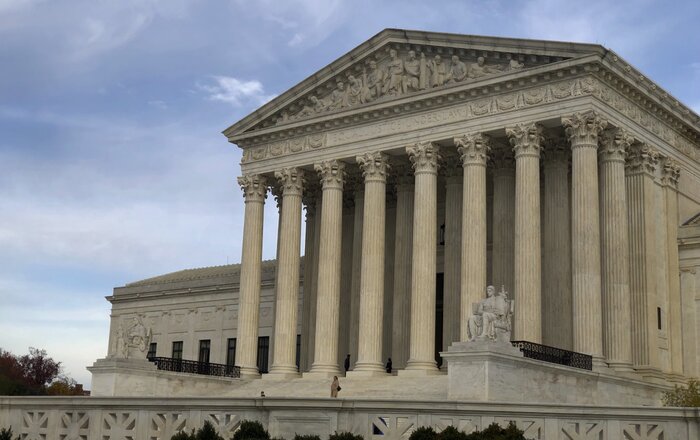Written By:
 Adam H. Rosenblum
Adam H. Rosenblum
Your Dedicated & Trusted Legal Team
3 Generations & 100+ Years of Combined Legal Experience
When you are arrested or charged with a crime, normally you are required to remain in custody at a jail or prison until your court date.
However, the law gives you an opportunity to post bail. This means that you will be given the opportunity to pay a sum of money mandated by the court in order to secure your release.
If you or someone else has the financial ability to post bail for you, you will then be released from custody and not have to remain in jail until your court date or trial.
The Significance of Posting Bail
When you post bail, you are given the ability to live at home and continue going to work until your trial starts. Otherwise, if you do not post bail, you will be locked away and unable to do these things. Essentially, bail reassures the court that you will show up to address the pending criminal charges you face and not flee the jurisdiction.
How Bail is Determined
Generally, bail is determined by the degree of the crime you committed, your prior criminal record, and the risk associated with you fleeing. More specifically, in State v. Johnson, the Supreme Court of New Jersey fleshed out eight factors that must be considered when fixing bail:
- The seriousness of the crime you are charged with, the apparent likelihood of being convicted, and the extent of the punishment prescribed by the legislature
- Your criminal record and previous record on bail
- Your reputation and mental condition
- The length of your residence in the community
- Your family ties and relationships
- Your employment status, record of employment, and financial condition
- The identity of responsible members of the community who would vouch for your reliability
- Any other factors indicating your mode of life, ties to the community, or bearing on the risk of failing to appear
After evaluating all of these, a judge will set your bail at a fixed sum of money. In the event that your bail is set too high, it is highly recommended that you contact an experienced criminal defense attorney to try to have it lowered. Here at Rosenblum Law, our team of lawyers will file bail reduction motions and vigorously fight to get your bail lowered to an amount that you can afford to pay.
Kinds of Bail
In New Jersey, the judge is given discretion to determine not only the amount that bail will be set at, but also the kind of bail that you will be obligated to pay.
Typically, there are four kinds of bail:
- Cash Bail- requires you to post the full cash amount of the bail and you will not be permitted to use a bond.
- Bondable Bail- allows you to post bail either in cash or through a bail-bondsman. If you elect to use a bail-bondsman, that individual or company will post their bond and it will be co-signed by someone other than you. Remember, a non-refundable 10% fee is typically charged in order for a bond to be issued.
- Ten Percent Bail – still involves a 10% commitment in order to secure bail, but this kind is posted directly to the court instead of being a fee payable to the bonding company. The ten percent is then refunded to you once the charges against you are resolved.
- ROR (Released on Your Own Recognizance) – releases you on your own recognizance. This means that there is no cash, bond, or other security needed to be paid in order for you to be released.
Will I Get the Money Back?
The money that you post as bail is similar to the security deposit that you pay when you rent an apartment. If everything goes well and there is no damage to the premises, you will get your security deposit back after your lease ends.
Likewise, as long as you do not flee the jurisdiction or fail to appear in court, you will get your bail money back either when you appear or at the conclusion of your trial (depending on the surrounding circumstances).
However, if you flee the jurisdiction or otherwise fail to appear in court, you forfeit your right to get your money back. Therefore, it is crucial that you remain in the jurisdiction and show up to court each day that you are required to be there.
Bail Restrictions and Conditions
If you are charged with a first or second degree crime, New Jersey courts may force you to pay full cash bail due to specific bail restrictions contained in the New Jersey Bail Schedule. These restrictions are found most commonly with robbery, sexual assault, eluding/resisting arrest, and murder.
Additionally, a judge can impose certain conditions on your release. These conditions usually include surrendering your passport (in order to prevent you from leaving the country) or prohibiting you from having any contact with the alleged victim.
Who Should You Contact?
If you or a loved one was charged with a crime in New Jersey and cannot post bail, contact Adam H. Rosenblum of Rosenblum Law today. Mr. Rosenblum is a skilled criminal defense attorney who has helped people in similar situations. He will defend your constitutional rights, fight to keep you out of jail, and do what he can to have your bail reduced. E-mail or call him today at 888-815-3649.
 Adam H. Rosenblum
Adam H. Rosenblum
About The Author
Adam is the founding attorney and principal of Rosenblum Law. With more than two decades of legal experience in numerous areas of law practice, his primary focus is law firm management and business development.
Read MoreLatest from Our Blog



Editorial Standards
Rosenblum Law is committed to delivering informative content of the highest quality. All content is subject to our rigorous editorial standards for relevance, accuracy, sourcing, and objectivity. Everything is fact-checked by an editor and reviewed for legal soundness by one of our practicing attorneys prior to being published.
How to Cite Rosenblum Law’s Article
APA
Adam H. Rosenblum (Sep 5, 2012). Top 10 Questions to Ask a Criminal Lawyer Before Hiring Him. Rosenblum Law Firm, https://rosenblumlaw.com/top-10-questions-to-ask-a-criminal-lawyer-before-hiring-him/
MLA
Adam H. Rosenblum "Top 10 Questions to Ask a Criminal Lawyer Before Hiring Him". Rosenblum Law Firm, Sep 5, 2012. https://rosenblumlaw.com/top-10-questions-to-ask-a-criminal-lawyer-before-hiring-him/









